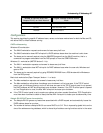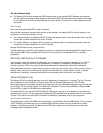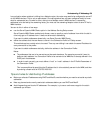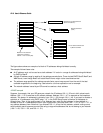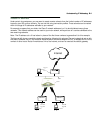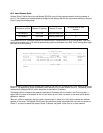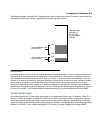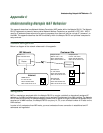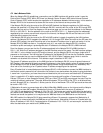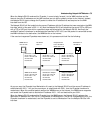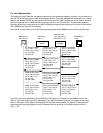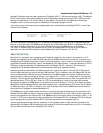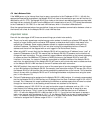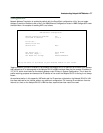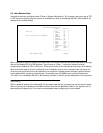
Understanding Netopia NAT Behavior C-1
AA
AA
pp
pp
pp
pp
ee
ee
nn
nn
dd
dd
ii
ii
xx
xx
CC
CC
UU
UU
nn
nn
dd
dd
ee
ee
rr
rr
ss
ss
tt
tt
aa
aa
nn
nn
dd
dd
ii
ii
nn
nn
gg
gg
NN
NN
ee
ee
tt
tt
oo
oo
pp
pp
ii
ii
aa
aa
NN
NN
AA
AA
TT
TT
BB
BB
ee
ee
hh
hh
aa
aa
vv
vv
ii
ii
oo
oo
rr
rr
This appendix describes how Network Address Translation (NAT) works within the Netopia R9100. The Netopia
R9100 implements a powerful feature called Network Address Translation as specified in RFC 1631. NAT is
used for IP address conservation and for security purposes since there will only be a single IP “presence” on
the WAN. This appendix describes the NAT functionality within the Netopia R9100 and provides examples for
setup and use.
Network configuration
Below is a diagram of the network referenced in this appendix.
Background
NAT is a mechanism employed within the Netopia R9100 to acquire a statically or dynamically assigned IP
address on its WAN interface and proxy against locally assigned IP addresses on its LAN interface. The Netopia
R9100 uses a one-to-many IP address mapping scheme; that is against a single IP address the Netopia R9100
acquires on its WAN interface, the Netopia R9100 can proxy 14, 30, or an unlimited number of IP hosts on the
LAN interface.
In order to fully understand how NAT works, you must understand how a connection is established and IP
addresses are negotiated.
ISP Network Customer Site
Internet
Router
Netopia
LAN
Workstation B
IP: 192.168.5.3
Mask: 255.255.255.240
MAC: 00-05-02-00-1e-03
IP: 200.1.1.1
Mask: 255.255.255.0
Workstation A
IP: 192.168.5.2
Mask: 255.255.255.240
MAC: 00-05-02-04-12-4f
Netopia Router
WAN IP: 200.1.1.40
Mask: 255.255.255.0
MAC: 00-00-c5-60-21-0a
Netopia Router
LAN IP: 192.168.5.1
Mask: 255.255.255.240
MAC: 00-00-c5-60-21-0a
WWW Server
IP: 163.176.4.32
Mask: 255.255.255.0
MAC: 00-05-02-0c-1b-41



